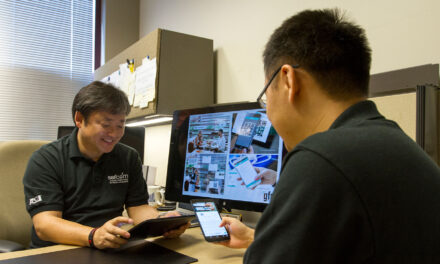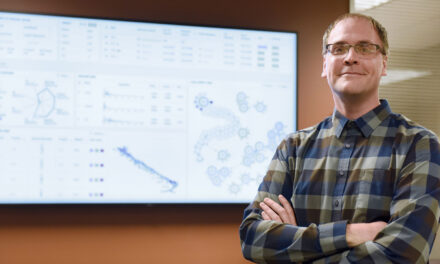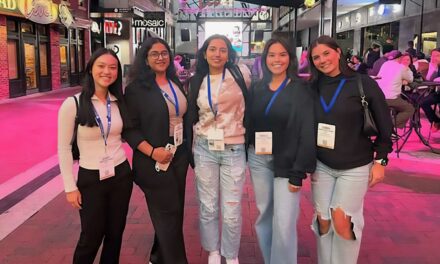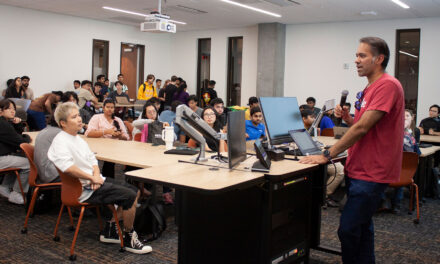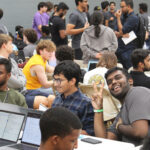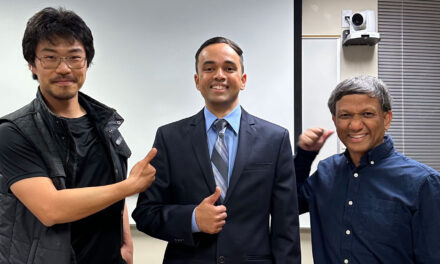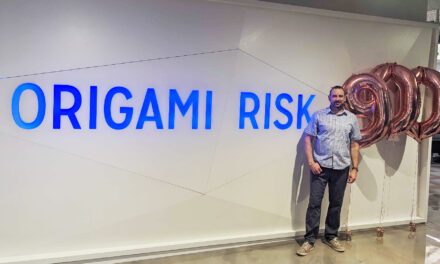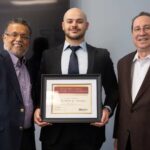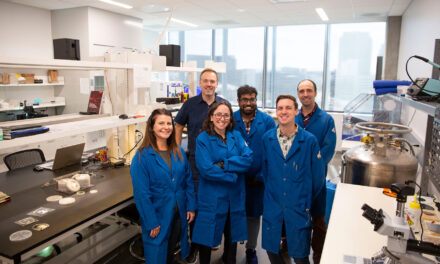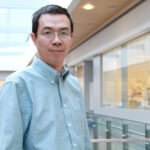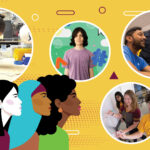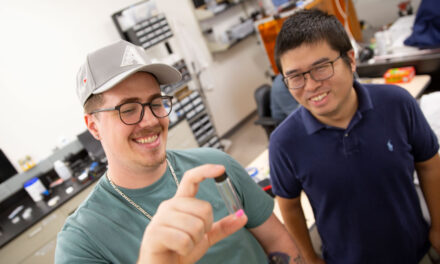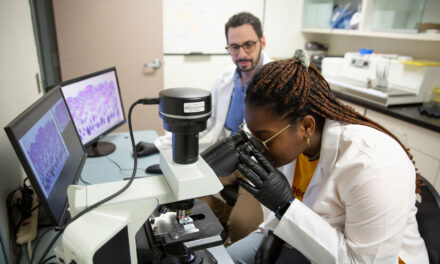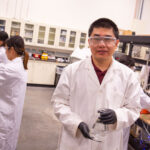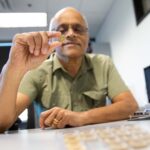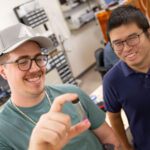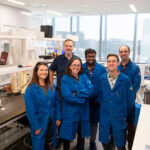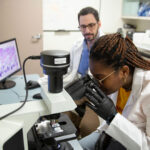
Seeding innovation in Southeast Asia
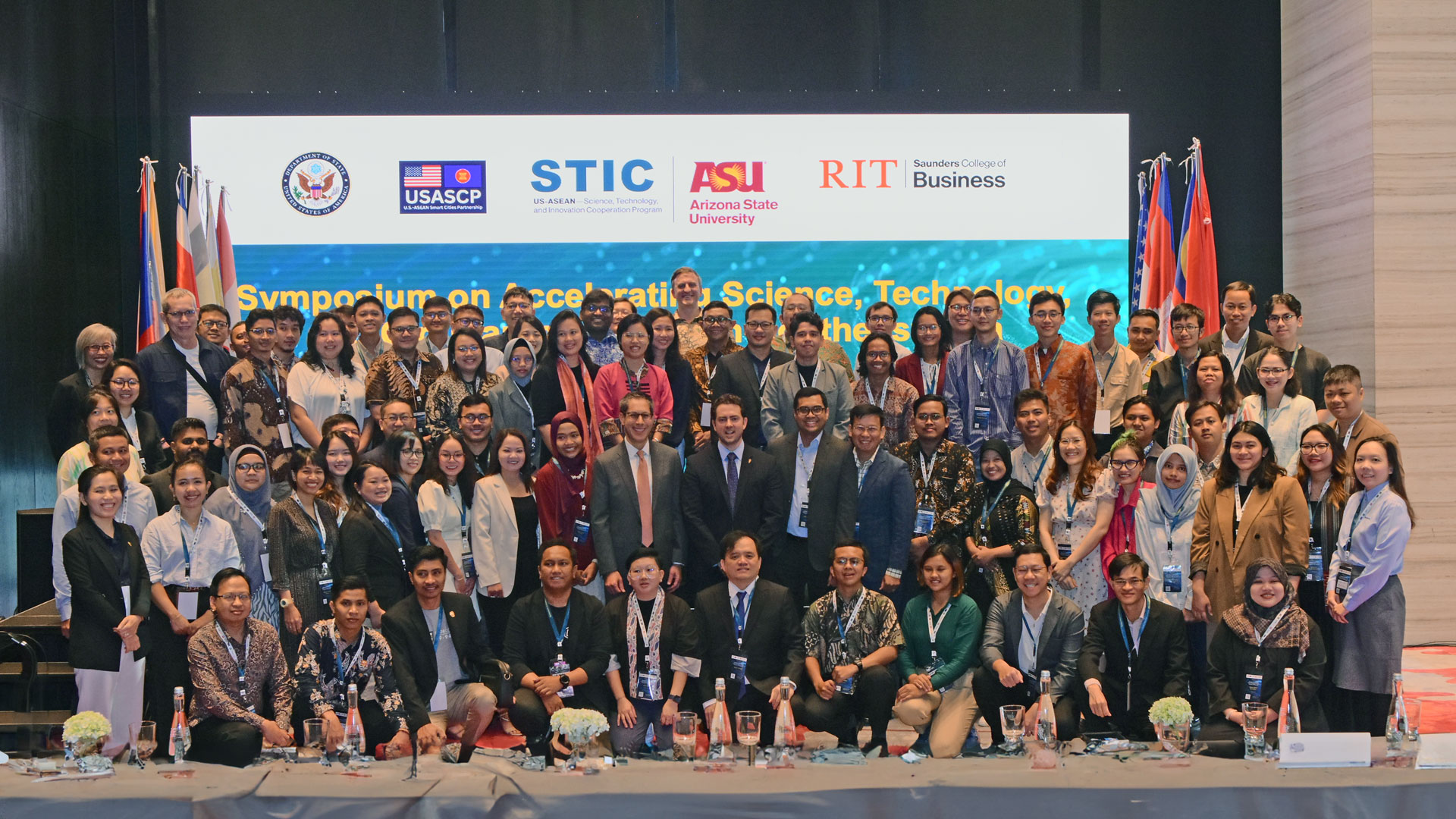
The U.S.-ASEAN Science, Technology, and Innovation Cooperation held its annual conference in Jakarta, Indonesia, in early September 2023. The gathering was a pivotal component of the Symposium on Accelerating Science, Technology, and Circular Innovation in Southeast Asia.
The event underscored U.S. commitment to strong, dependable and active aid to the Association of Southeast Asian Nations, also known as ASEAN, by supporting initiatives that drive cooperation in science, innovation, technology and sustainable economic growth.
The Ira A. Fulton Schools of Engineering at Arizona State University facilitates the U.S.-ASEAN STIC Program using $2.8 million in grant funding from the U.S. Department of State. Facilitated by the Fulton Schools’ Global Outreach and Extended Education office, the STIC Program has three components: a policy study tour in Washington, D.C., an education portal and the annual regional conference.
Global Outreach and Extended Education’s collaboration with the Department of State to implement successful and impactful engagements in ASEAN countries led to the recent establishment of the U.S.-ASEAN Center in Washington, D.C., to develop joint research opportunities, student and faculty exchanges, academic program partnerships and outreach activities to support collaboration between the U.S. and ASEAN.
“Innovation knows no borders, and this conference exemplifies the power of collaboration,” says Jose Quiroga, director of global development for Global Outreach and Extended Education. “The STIC Program is breaking down barriers and nurturing a thriving ecosystem of science and technology in Southeast Asia.”
The multiday event provided a significant opportunity for attendees from the U.S. and ASEAN member states to collaborate, share knowledge and promote new developments in science, technology and circular innovation.
All the organizations involved recognize the crucial role of these fields in sustainable economic growth, and the conference exemplified their mutual commitment to building a prosperous future together.
Deputy Chief of Mission for the U.S. Mission to ASEAN Michael Kleine, opened the second day of the conference with a discussion of opportunities for knowledge exchange, innovation and networking. Events later in the day included workshops and panel discussions on critical issues in the region such as resilient digital infrastructure, cybersecurity, startup funding strategies and scientific discoveries.
The session also included a keynote presentation, “Advancing Science and Technology in Southeast Asia,” presented by Zurina Moktar, head of the Science and Technology Division at ASEAN Secretariat.
Competitions provide funding for startups
The conference featured a pair of competitions that awarded $100,000 in seed funding to the top eight research and startup proposals.
The conference’s first competition involved a venture pitch in which 35 participants presented their innovative ideas to a panel of judges.
The venture pitch competition winners were Annamalai Thani of Malaysia for his HariGaji financial well-being project; Feb Hillman of Indonesia for a carbon capture solution for cement industries; Vu Hai Nam of Vietnam for tMonitor, an indoor air quality measurement company with equipment and associated software; and Rival Syah of Indonesia for creating a digital marketplace known as Karja, which aims to reduce unemployment.
The second competition, a STIC Program research and publishing poster showcase, highlighted research concepts with real-world applications or that produced data significant to policy formulation in ASEAN member countries. These proposals were selected from hundreds of concepts submitted by the STIC Talent Mobility Portal‘s eager community of learners from all ASEAN countries.
Winners for the STIC research and publishing poster showcase were Nguyen Thi Tuyet Nhung of Vietnam for pre-clinical research on an herbal medicine targeting liver cancer utilizing the Willughbeia cochinchinensis plant; Kavirajaa Pandian Sambasevam of Malaysia for a palm oil refining solution; Woh Pei Yee of Malaysia for her artificial intelligence-based antimicrobial resistance prediction technology, which identifies genetic markers of antibiotic resistance; and Feb Hillman, who also won in the venture pitch competition for his carbon capture solution.
“The diversity of ideas and talent showcased at the STIC conference is a testament to the region’s potential,” Quiroga says. “By providing $100,000 in seed funding annually, we’re investing in the future of innovation in the ASEAN region. These winners represent the first sparks of what promises to be a brilliant fire.”
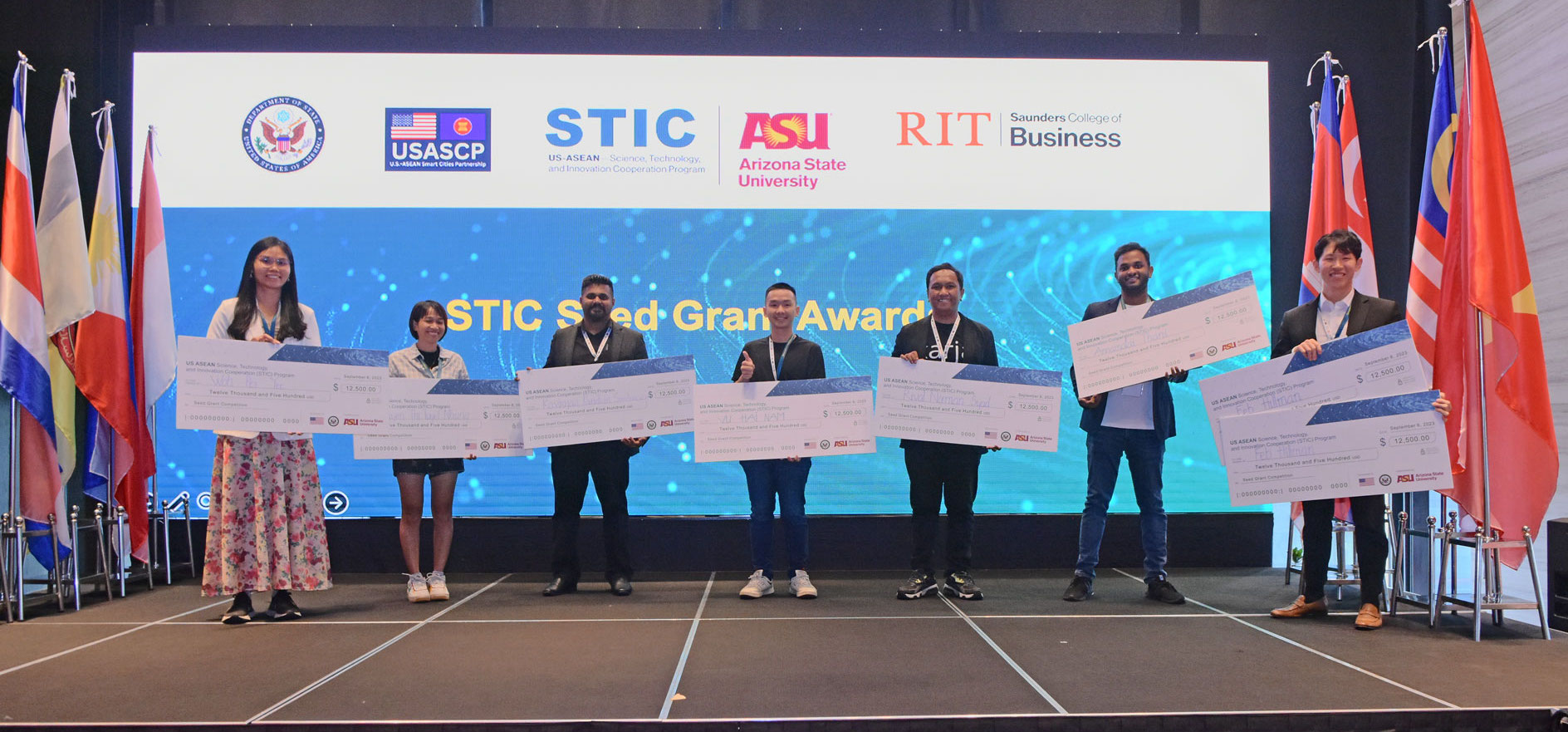
Entrepreneurs (from left to right) Woh Pei Yee, Nguyen Thi Tuyet Nhung, Kavirajaa Pandian Sambasevam, Vu Hai Nam, Rival Syah, Annamalai Thani and Feb Hillman won a total of $100,000 in seed funding during the U.S.-ASEAN Science, Technology, and Innovation Cooperation Program conference as part of the Symposium on Accelerating Science, Technology, and Circular Innovation in Southeast Asia held in Jakarta, Indonesia. Photo courtesy of Lien Le


